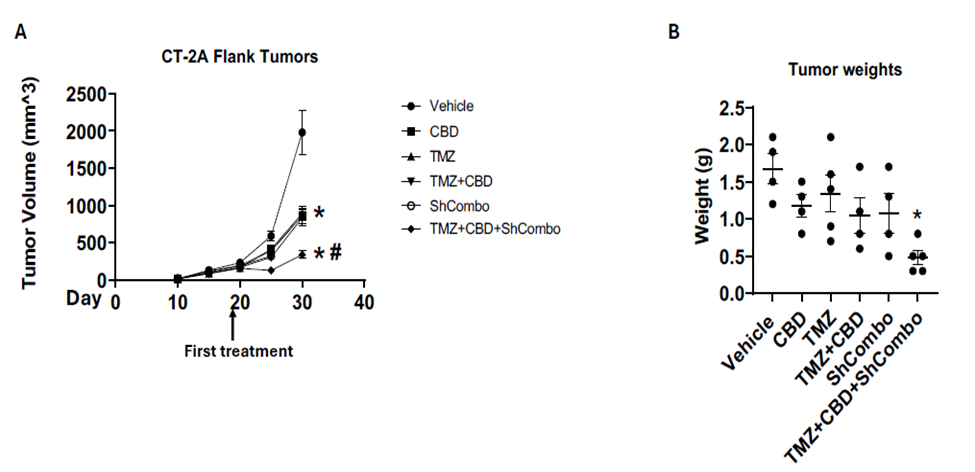Advantages:
- Temozolomide (TMZ), Cannabidiol (CBD), and CCR6/CCL20 inhibitors work together to overcome Glioblastoma resistance and enhance efficacy
- Targeted CCL20/CCR6 inhibition blocks survival pathways in glioblastoma, reducing resistance and relapse while improving outcomes
- Enhances CD8+ T cells and rewires immunity, offering powerful, lasting anti-tumor effects in glioblastoma treatment
- PAMAM dendrimer delivery targets CCR6/CCL20 in glioblastoma, enhancing precision and efficacy while reducing toxicity
Summary:
Glioblastoma multiforme remains one of the most formidable challenges in oncology due to its aggressive nature, marked heterogeneity, and intrinsic resistance to conventional therapies such as chemotherapy, radiation, and immunotherapy. Standard treatments like temozolomide, while effective in inducing DNA damage, often trigger robust repair mechanisms and activate various pro-survival signaling pathways, leading to treatment failure. Moreover, the tumor’s cellular diversity and dynamic microenvironment hinder uniform therapeutic responses, while emerging approaches that explore agents like cannabinoids demonstrate both promise and limitations, notably the potential activation of alternative resistance circuits. These issues underscore the critical need for strategies that address the complex interplay of intrinsic genetic factors, adaptive resistance mechanisms, and microenvironmental influences in GBM.
Our researchers developed a novel technology that combines Temozolomide (TMZ) and Cannabidiol (CBD) with a CCL20/CCR6 axis inhibitor to address resistance mechanisms in glioblastoma by modulating both tumor cell viability and underlying gene expression pathways. Laboratory studies on GBM cell lines (CT-2A, U87, U251) demonstrated that CBD exhibits lower IC50 values than TMZ in some cases and that the addition of TMZ can synergistically reduce the effective concentration of CBD in certain contexts while also altering the expression of resistance-associated genes such as CCL20, CCR6, HSPA6, IL-6, and Upa. In vivo experiments using a CT-2A mouse model showed that treatment with the triple combination—administered via intraperitoneal injection and complemented by targeted shRNA delivery via a PAMAM dendrimer to suppress the CCL20/CCR6 pathway—significantly reduced tumor growth and weight, and modulated immune cell populations (such as CD3+CD8+ T cells, monocytes, and neutrophils) compared to controls.

Figure 1: C57BL/6 mice with CT-2A tumors were treated with CBD, TMZ, or both, showing reduced tumor growth by day 35. (A) The shCombo+CBD+TMZ combination showed significantly reduced tumor growth with no significant differences in body weight (B). CBD+TMZ+shCCR6/CCL20 alters the abundance of lymphocyte and monocyte populations in the spleens of tumor-bearing mice.
Desired Partnerships:
- License
- Sponsored Research
- Co-Development